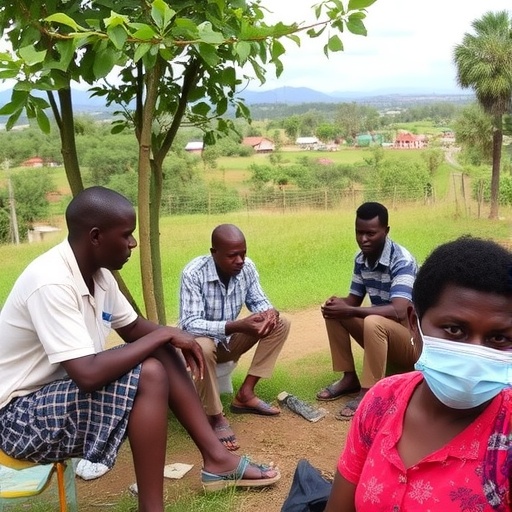In the evolving landscape of community development, understanding the institutional and organizational dynamics that determine project success is crucial. A recent study by A.G. Mtuta, published in the International Journal of Anthropology and Ethnology, elucidates these dynamics within the specific context of T.A. Chauma in Dedza District, Malawi. This research offers valuable insights, not only for academics but also for practitioners and policy makers aiming to enhance developmental outcomes in similarly structured communities worldwide.
The study meticulously explores the intertwined relationship between institutional frameworks and organizational structures and their impact on community development initiatives. Mtuta’s analysis stems from extensive fieldwork and qualitative data collection, painting a comprehensive picture of how community projects can be either propelled forward or hindered by these internal and external factors. Given the increasingly global focus on sustainable development, the implications of such research are profound.
One of the foundational aspects highlighted is the role of traditional authority and local governance institutions in project implementation. In T.A. Chauma, these institutions are deeply embedded in the social fabric, commanding respect and influence that can significantly shape developmental activities. Mtuta discusses how these authorities serve as gatekeepers and facilitators, mediating between community needs and external stakeholders such as government agencies and non-governmental organizations (NGOs).
Furthermore, the paper details how organizational capacity — including leadership quality, member participation, and resource management — plays a decisive role in the actual delivery and sustainability of community projects. Effective leadership, characterized by transparency and inclusiveness, fosters a sense of ownership amongst community members, which Mtuta identifies as a key driver of project sustainability. Conversely, weak organizational structures often lead to mismanagement and erosion of community trust.
The research also delves into the challenges posed by institutional rigidity and bureaucratic bottlenecks that frequently thwart development efforts. Mtuta’s findings reveal that while formal structures provide necessary frameworks, excessive procedural constraints can stifle innovation and responsiveness. This tension between structure and flexibility is central to understanding why some projects falter despite ostensibly sound planning.
Another critical dimension explored is the interaction between external donors and local institutions. The study underscores the importance of aligning donor priorities with community-driven goals to avoid conflicts and ensure relevance. Mtuta argues that when external interventions fail to consider local institutional contexts, projects often lack legitimacy and face resistance, curtailing their effectiveness.
Institutional trust emerges from Mtuta’s work as a vital element that underpins successful collaboration and collective action. In T.A. Chauma, trust deficits between community members and leadership organizations have historically undermined development progress. The study proposes that building robust communication channels and promoting accountability mechanisms are essential steps in overcoming these trust barriers.
Additionally, the study investigates gender dynamics within institutional and organizational frameworks. Women’s participation in decision-making processes is identified as uneven and frequently marginalized. Mtuta highlights that enhancing gender inclusiveness not only promotes equity but also enriches the diversity of perspectives, ultimately improving developmental outcomes.
A notable technical contribution of the paper is its methodological approach, which combines ethnographic observation with participatory action research. This hybrid methodology provides a nuanced understanding of the socio-cultural dimensions influencing community projects, an approach that could serve as a model for similar contested environments.
Mtuta’s findings also shed light on the importance of adaptive management in community development. Given the shifting socio-political landscape and environmental uncertainties characteristic of Dedza District, projects that incorporate flexibility in planning and execution are more resilient. This adaptive capacity enables communities to respond to emerging challenges without abandoning long-term goals.
The study emphasizes the centrality of capacity-building initiatives aimed at strengthening local institutions. Empowering community groups with skills in project management, resource mobilization, and conflict resolution enhances their ability to drive sustainable development autonomously. Mtuta argues that external agencies must prioritize these investments rather than merely funding physical infrastructure.
In terms of practical implications, the research suggests policy reforms that support decentralization and greater autonomy for local institutions. By devolving power and fostering an enabling environment, development projects can better reflect local realities and mobilize indigenous knowledge systems, which are often overlooked in top-down approaches.
Mtuta also captures the role of social networks and informal associations which operate parallel to formal institutions. These networks act as critical communication channels and safety nets, facilitating resource exchange and mutual support – factors that significantly influence the trajectory of community projects.
The paper’s comprehensive analysis reveals that successful community development hinges not just on technical inputs or financial resources but profoundly on the socio-institutional ecosystem. Recognizing and strengthening this ecosystem is paramount for sustainable progress, especially in rural and marginalized areas such as T.A. Chauma.
Ultimately, this study contributes a rich, context-specific understanding of how institutional and organizational factors intersect to shape the fate of community development projects. Its findings resonate beyond Malawi, offering universally relevant lessons for anyone engaged in the complex task of fostering grassroots development in culturally embedded settings.
As the global development community continues to grapple with enhancing project sustainability and impact, Mtuta’s research provides a timely and technically robust framework. By illuminating the often-overlooked organizational intricacies and institutional influences, it challenges practitioners and policy makers to rethink conventional approaches and invest in the social architecture that undergirds development success.
Subject of Research: Institutional and organizational factors influencing community development projects in the area of T.A. Chauma, Dedza District, Malawi.
Article Title: Gulewamkulu institutional and organizational factors influencing community development projects in the area of T.A. Chauma in Dedza District, Malawi.
Article References:
Mtuta, A.G. Gulewamkulu institutional and organizational factors influencing community development projects in the area of T.A. Chauma in Dedza District, Malawi.
Int. j. anthropol. ethnol. 7, 21 (2023). https://doi.org/10.1186/s41257-023-00100-4
Image Credits: AI Generated
DOI: 06 December 2023




